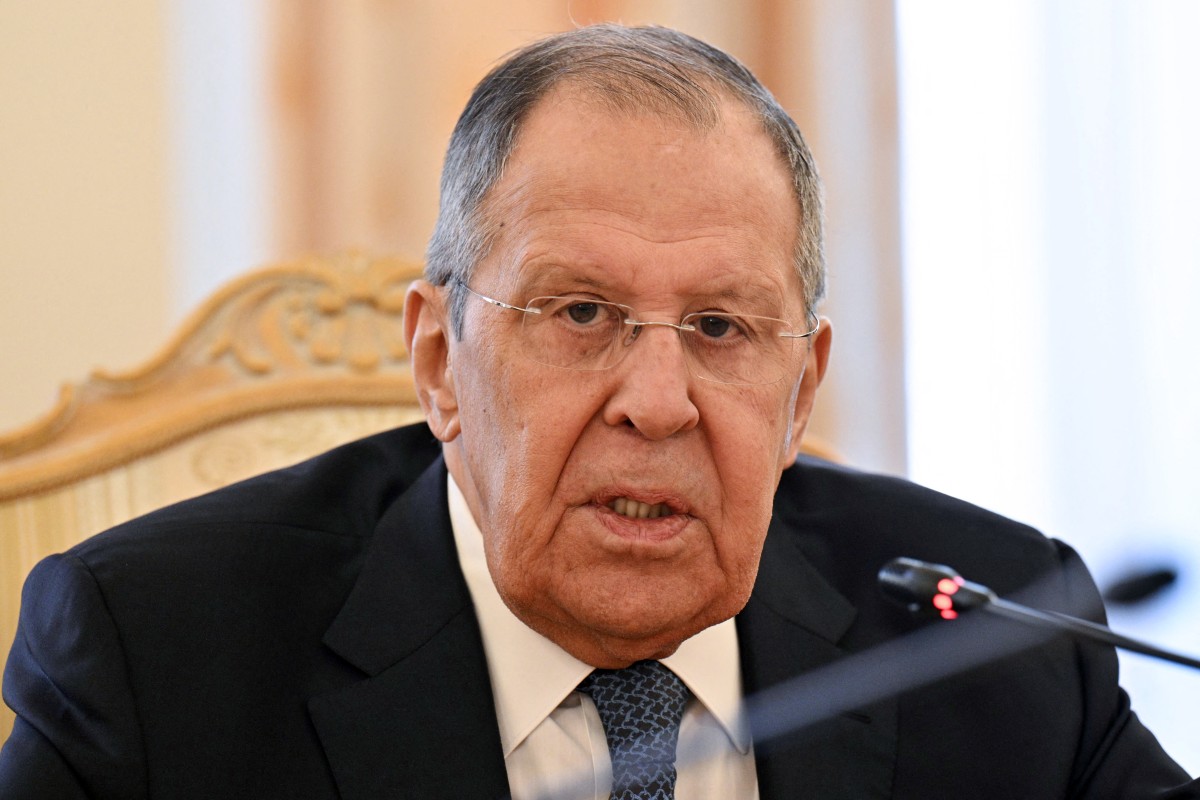US President Donald Trump’s newly announced 20-point plan to end Israel’s war in Gaza and release hostages held by Hamas has sparked mixed reactions across the Middle East. It was initially widely praised but was soon followed by criticism from key regional allies.
Pakistan issued a joint statement with seven other Muslim countries during the announcement of the 20-point peace plan, praising President Trump's sincere efforts to end the war. Later, Pakistan, along with Qatar, noted that changes had been made to the originally-proposed draft.
The changes are being called out as benefiting Israel rather than the Palestinians and requiring the inclusion of other points that were previously discussed with the US.
‘Lack of Palestinian input’
Experts on the Middle East believe there are many obstacles to implementing the plan, from the supposed disagreement within the Hamas leadership to doubts about Israel’s intentions to carry it out.
Dr Jason Campbell, an expert on defense and regional security at The Middle East Institute, called it a sign of “general frustrations” that seem to center on a handful of factors stipulated in the plan.
“Lack of Palestinian input in the drafting has been a justifiable criticism,” he said. “Particularly given that it was Israel's unwarranted attack on Hamas negotiators in Doha that derailed previous collaborative discussions.”
This is a view shared by Areig Elhag, Arabic Content Editor at The Washington Institute for Near East Policy. She says that the plan was shaped mainly around US and Israeli priorities.
“Without solid guarantees for Palestinian sovereignty, regional actors recognized that implementation depends on reforms within the Palestinian Authority and the disarmament of Hamas” — conditions she believes seem highly unrealistic to materialize in the near term.
‘Product of extensive consultation’
Trump described his plan as the product of “extensive consultation with friends and partners throughout the region.”
Under the plan, hostilities would end immediately once both parties accepted. Israeli forces would withdraw to agreed positions, and all military operations would be frozen. Within 72 hours, all hostages would be returned, and Israel would release Palestinian prisoners serving life sentences and those detained. Hamas members who agree to disarm and “commit to peaceful co-existence” would receive amnesty, while those wishing to leave Gaza would be granted safe passage to third countries.
As proposed by President Trump in the draft, a “Peace Board” would take over control of the administration in Gaza, headed by President Trump himself; however, the rest of the composition remains unclear. A few names have been floated, said Dr Campbell, such as Tony Blair’s.
However, many consider the former British prime minister a controversial figure, often questioned for his allegedly misleading policies during the Iraq War. Blair's decision to lead the UK into the 2003 Iraq War remains one of the most controversial events of his career.
Given that context, analysts believe this is also drawing criticism, particularly from Palestinians. Elhag notes that concerns in such a situation are justified. She explains that they stem from a lack of clear mechanisms for enforcing the plan, causing the 20 points to seem more like a “political gesture than a practical roadmap.”
Accept now. Discuss details later?
Dr Campbell considers it a concern that the peace draft does not specify conditions for fully removing Israeli forces from Gaza. Despite this flaw, he says, reports indicate that key mediators, including Qatar, Turkey, and Egypt, are “recommending” that Hamas negotiators accept the plan “in principle” and iron out the details during implementation.
This approach aligns with the stance many Islamic countries are also adopting, as Pakistan’s Deputy Prime Minister and Foreign Minister, Ishaq Dar, pointed out the absence of several critical points from the peace plan but expressed hope that they will be included in the future.
Is there any alternative to this plan?
There have been numerous ceasefire deals that were tabled over the past two years of Israel’s war against Palestine, but none of those have borne any fruit.
“The reality is that there are no other alternatives currently on the table, and the continuation of the war is in no one's interest.”
Regarding whether Hamas and Israel will follow the plan, Elhag said, “It is difficult to imagine both sides fully committing. Hamas remains divided — some leaders are pragmatic, while others are hardline. This internal split weakens the chances of success.”
On the Israeli side, the government faces significant domestic political pressure. Prime Minister Netanyahu may publicly support the plan, but he must proceed cautiously to avoid alienating his coalition partners. Over the past two years, there remain strong doubts about the seriousness of this proposal.
While Dr Jason Campbell also shares this skepticism, he said that predicting anything is impossible. However, based on recent history, he believes both sides will try to follow the plan in words, if not in practice.
There is sufficient ambiguity in the points to allow each side to claim they are following the agreement, even if no real progress is being made.
What does this plan mean for a common Gazan?
Both Elhag and Dr Campbell agree that the world is exhausted from witnessing the widespread devastation and human suffering in Gaza, and the priority is to stop it immediately.
“The reported sentiment is one of ending the incessant attacks, even if the points presented are imperfect.” Elhag believes that “many Gazans are likely to see it less as a genuine peace agreement and more as a managed truce, one that temporarily improves daily life but postpones core political issues such as statehood and sovereignty.”
“Without addressing the fundamentals,” she fears, “the plan risks becoming just another transitional arrangement rather than a lasting solution.”
While the plan gains momentum as more Western nations acknowledge Palestine's statehood, President Trump has made it clear that he “will be the one deciding when Hamas has run out of time.”
Latest News
Pakistan responds to unprovoked Afghan border fire as tensions escalate
AN HOUR AGO

South Africa thrash West Indies in T20 World Cup statement win
5 HOURS AGO

Nearly 8,000 died or vanished on migrant routes in 2025: UN
5 HOURS AGO

Russian says 'no deadlines' to end Ukraine war
6 HOURS AGO

Merz says Germany, China must overcome trade gaps 'together'
9 HOURS AGO


.JPG)

.jpg)